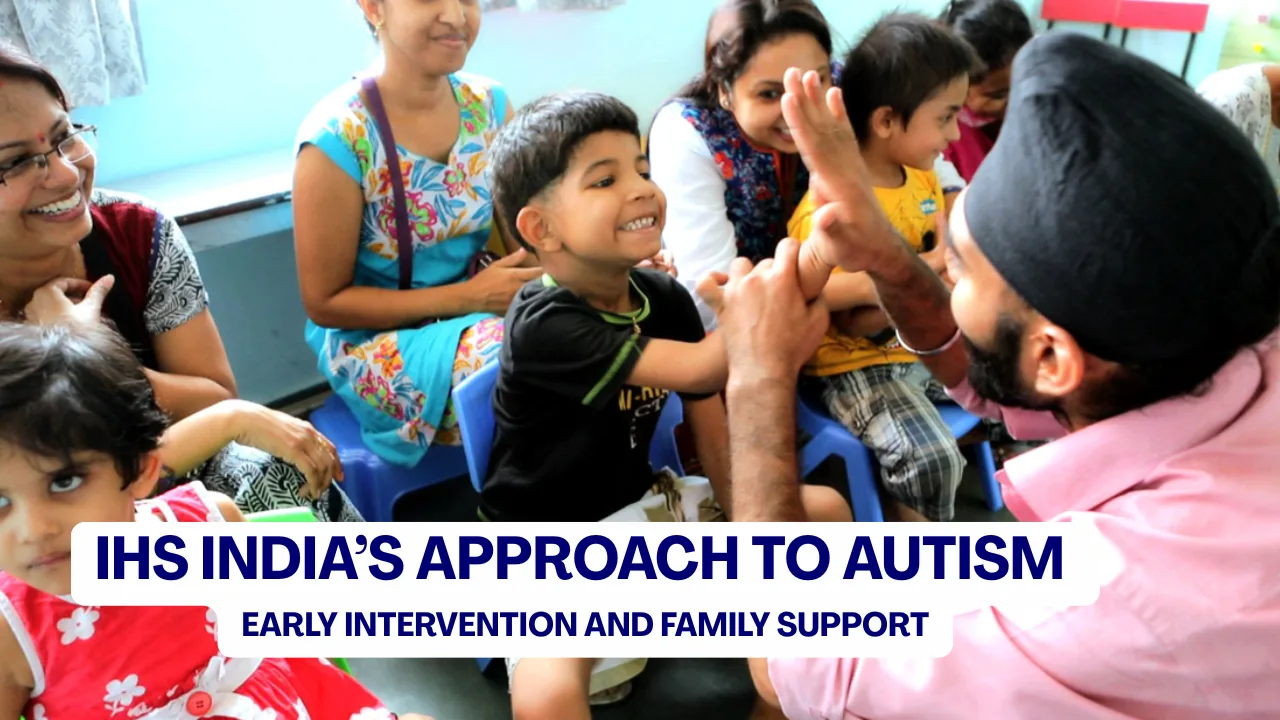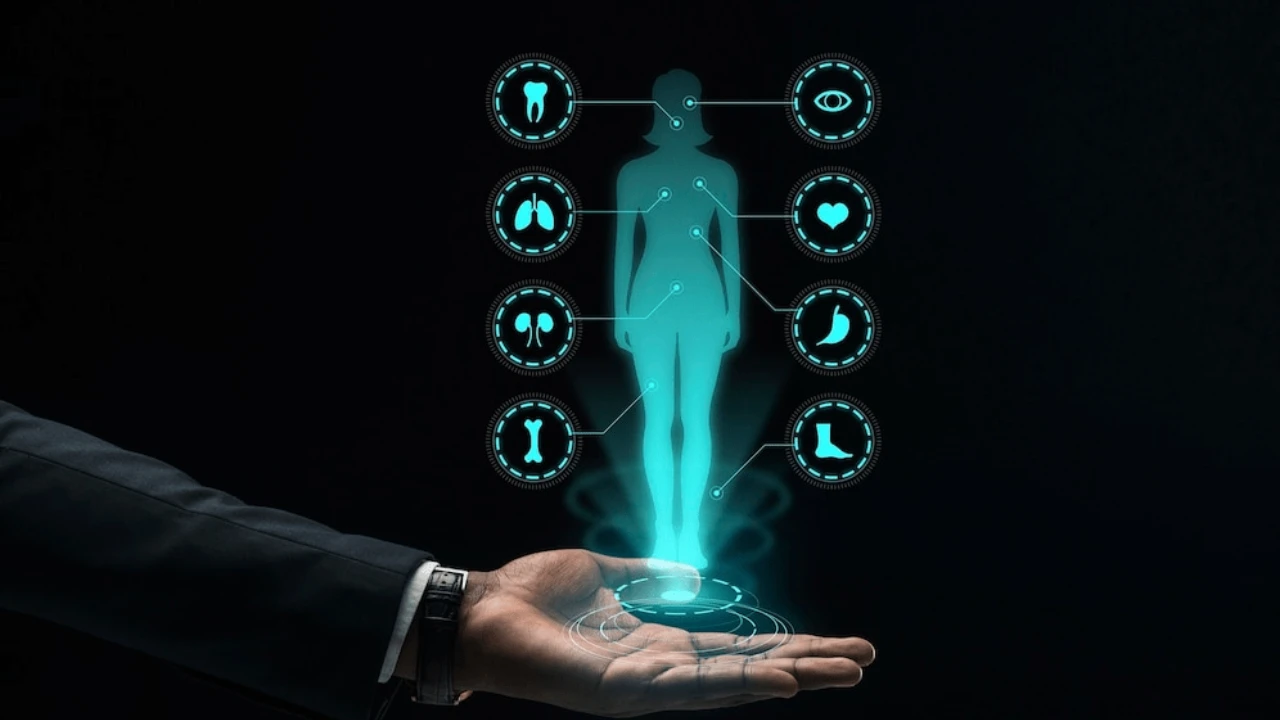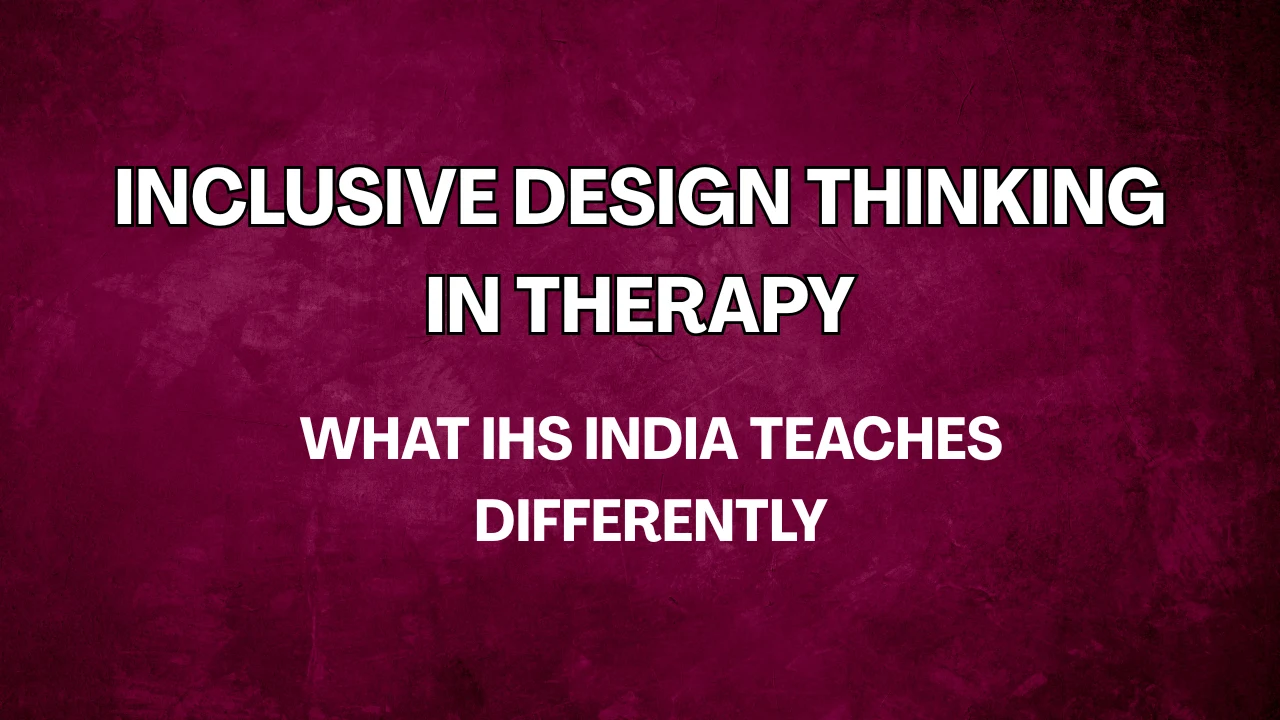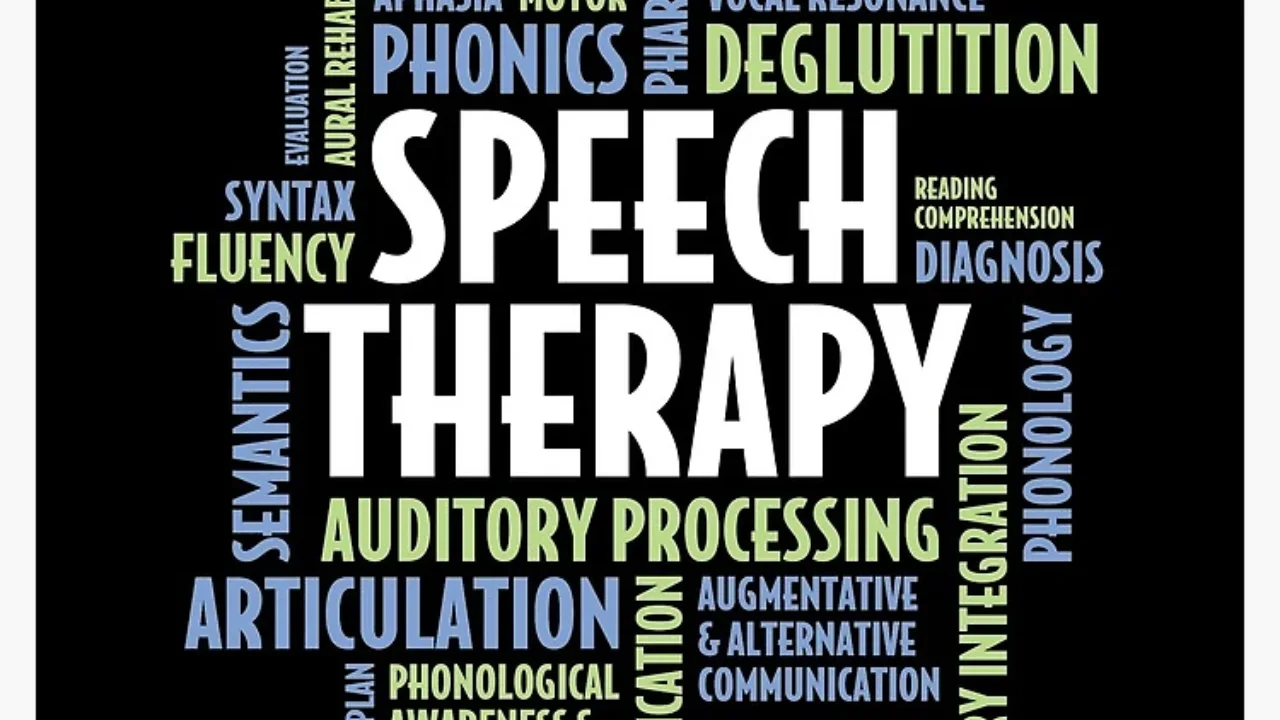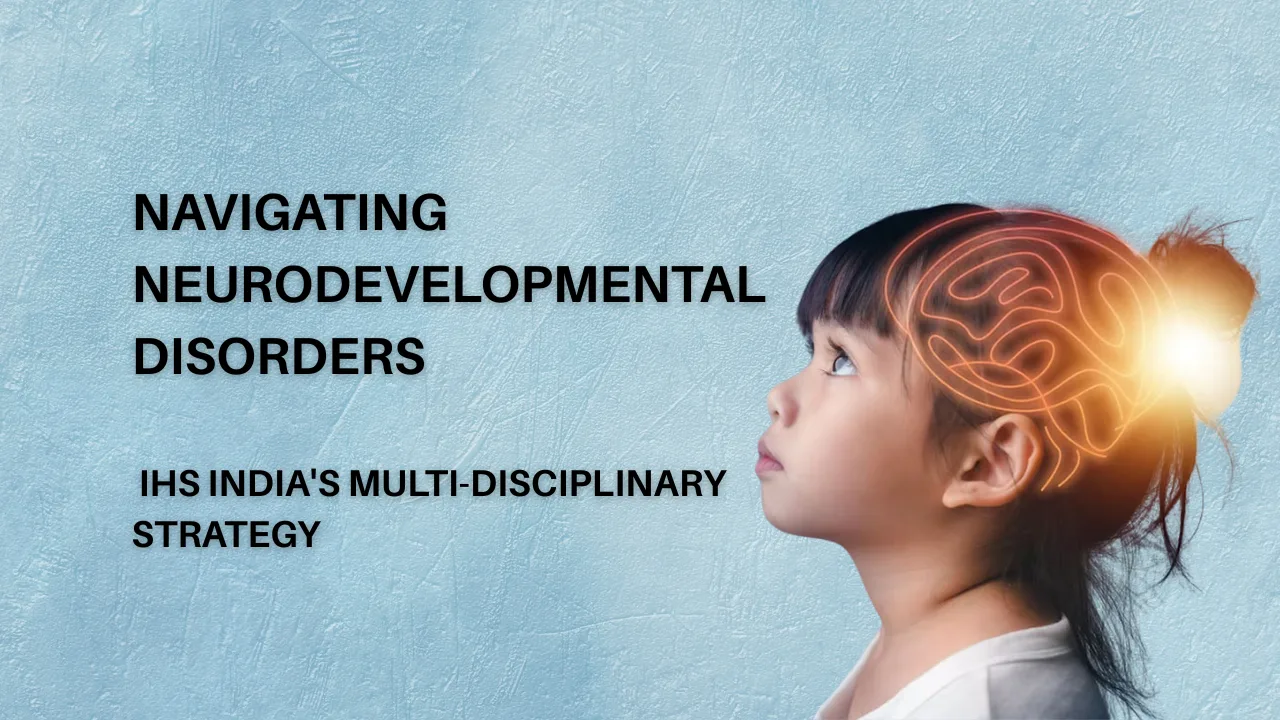IHS India’s Approach to Autism: IHS India has become a critical support system for families navigating autism, providing not only clinical solutions but also emotional and practical guidance. In a country where autism awareness is still growing, their approach stands out by addressing both the developmental and social aspects of the condition. For parents often overwhelmed by the initial diagnosis, IHS India offers a structured, empathetic pathway that starts early and adapts as the child grows.
This article dives into the core philosophy and practices of IHS India, exploring how they empower children and families through early diagnosis, customized therapy, and hands-on parental support. We’ll walk through their step-by-step model, look at how their team integrates therapy into everyday life, and examine how they go beyond the clinic to create inclusive, community-based outcomes for children with autism.
How IHS India Provides Early Autism Support with Family-Focused Intervention
IHS India focuses on identifying autism spectrum signs as early as possible, typically before age three, using a blend of behavioral assessments and parental input. Their core philosophy is built around the belief that early intervention makes a significant difference—not just in the child’s communication and social behavior, but also in the emotional strength of the family. From speech therapy to parent training, every element is tailored to the child’s needs and family environment. By offering services like occupational therapy, school readiness programs, and family education, IHS India helps ensure that children are not only diagnosed early but also grow with consistent, personalized support. Their model is designed to blend medical care with real-world integration.
| Overview of IHS India’s Autism Approach | Details |
| Early Diagnosis and Screening | Assessments before age 3 using behavior tracking and parent observations |
| Personalized Therapy Plans | Tailored programs in speech, occupational, and behavioral therapy |
| Family-Centered Support | Parent education, emotional support, and home practice integration |
| Inclusive Education Guidance | IEP creation, school liaison, and classroom support |
| Community Awareness and Involvement | Workshops, events, and public campaigns to reduce stigma |
Early Identification and Diagnosis
One of the first steps taken by IHS India is early autism screening. The earlier developmental delays are recognized, the greater the chances of improving long-term outcomes. At IHS, screening typically begins around 18 to 24 months when parents or caregivers report concerns about speech, interaction, or repetitive behaviors.
Using internationally recognized tools and checklists, professionals at IHS look for subtle signs of autism such as lack of eye contact, delayed speech, or resistance to change. Their diagnostic approach is detailed and collaborative—families are encouraged to share home observations and participate in discussions. This level of involvement ensures that diagnoses are accurate and timely, allowing intervention to begin when the child’s brain is most responsive.
Personalized Therapy Programs
Once a diagnosis is made, the next step is creating a therapy plan that reflects the child’s needs and strengths. IHS India excels in delivering multi-disciplinary therapy that often includes:
- Speech Therapy: To improve communication skills, whether verbal or non-verbal
- Occupational Therapy: To build daily life skills like eating, dressing, or sensory regulation
- Behavioral Therapy: To address social skills, tantrums, and repetitive actions
Every plan is unique. It’s not a one-size-fits-all structure. Therapy sessions are scheduled flexibly to fit family routines, and therapists offer regular updates to track progress. Children are never rushed; instead, they are nurtured in an environment that celebrates small wins while aiming for long-term development.
Empowering Families through Education
One of the most powerful aspects of IHS India’s model is the emphasis on family empowerment. A child’s progress is often deeply tied to how prepared their caregivers are. Recognizing this, IHS runs hands-on parent training sessions where families learn how to manage behavior, teach new skills at home, and build healthy routines.
These sessions are not medical lectures—they’re conversational, action-based, and practical. Parents are shown how to turn everyday moments into learning opportunities, whether it’s mealtime or playtime. Emotional support is also part of the package. Many families find themselves lost after a diagnosis, unsure of what comes next. IHS counselors and therapists are available to guide them, provide mental health support, and connect them to other families going through similar journeys.
Support Beyond Therapy
IHS India takes autism support beyond clinic walls. They help families integrate therapy into schools, social settings, and home life. This includes helping develop Individualized Education Plans (IEPs), coordinating with school staff, and even attending school meetings when needed.
Their support extends to:
- School Admission Prep: Helping children transition smoothly into academic environments
- Teacher Sensitization: Training educators to understand and accommodate autistic students
- Peer Inclusion Programs: Encouraging friendships through guided social activities
IHS believes that real change happens when communities become inclusive. That’s why their team works with extended family members, school authorities, and peer groups to build an accepting ecosystem around the child.
How IHS India Stands Out
- Multidisciplinary Care Team: Pediatricians, speech therapists, psychologists, and special educators all work together under one roof to ensure consistency.
- Parent-Centric Approach: Therapy is designed not only for children but also with parents in mind, creating continuity between home and therapy environments.
Tools and Resources for Families
IHS India doesn’t stop at diagnosis and therapy. They also provide:
- Parent Resource Kits: Guides on autism-friendly activities, sensory play, and communication tools
- Online Support Communities: Safe spaces where families can share advice and experiences
- Workshops and Seminars: Covering topics like behavior management, dietary considerations, and sibling support
By ensuring that parents are continuously learning and connecting with others, IHS reduces isolation and boosts confidence.
Community Awareness and Inclusion
Stigma remains one of the biggest barriers to autism support in India. IHS India actively works to change that through:
- Public Awareness Campaigns: Sharing stories of progress and advocacy across media channels
- Workshops in Schools and Colleges: Teaching younger generations about neurodiversity
- Inclusive Events: Hosting social events and talent showcases for children with special needs
These initiatives play a key role in transforming public attitudes and helping autistic individuals find their place in society with dignity.
FAQs
What are the signs that a child should be screened for autism?
If a child shows delayed speech, limited eye contact, repetitive behavior, or avoids social interaction, it’s advisable to consult a developmental expert for screening.
Can IHS India help with school-related challenges?
Yes, they assist with IEPs, teacher training, and even attend meetings to support the child’s integration into school.
Is therapy only for toddlers?
No, IHS India supports children and teens with autism. Therapy plans are adjusted based on age, needs, and developmental goals.
Do parents need to attend therapy sessions too?
Yes, parents are actively involved. This ensures the strategies learned in therapy are used at home, improving consistency.
How soon can therapy begin after diagnosis?
Therapy usually begins immediately after diagnosis, sometimes within the same week, depending on availability and the child’s readiness.
Final Thought
IHS India’s approach to autism stands out not just because of clinical expertise, but because of its human connection. They understand that therapy isn’t just about ticking boxes—it’s about helping children thrive in their own way, and helping families grow stronger together. Their deep commitment to early intervention, family education, and community inclusion has created a new model for autism care in India.
If you or someone you know is looking for support, don’t wait. Reach out to a center like IHS India, explore resources, join a community, and start the journey toward a brighter, more inclusive future.
Have thoughts or questions? Leave a comment or explore more parenting and development resources today.
